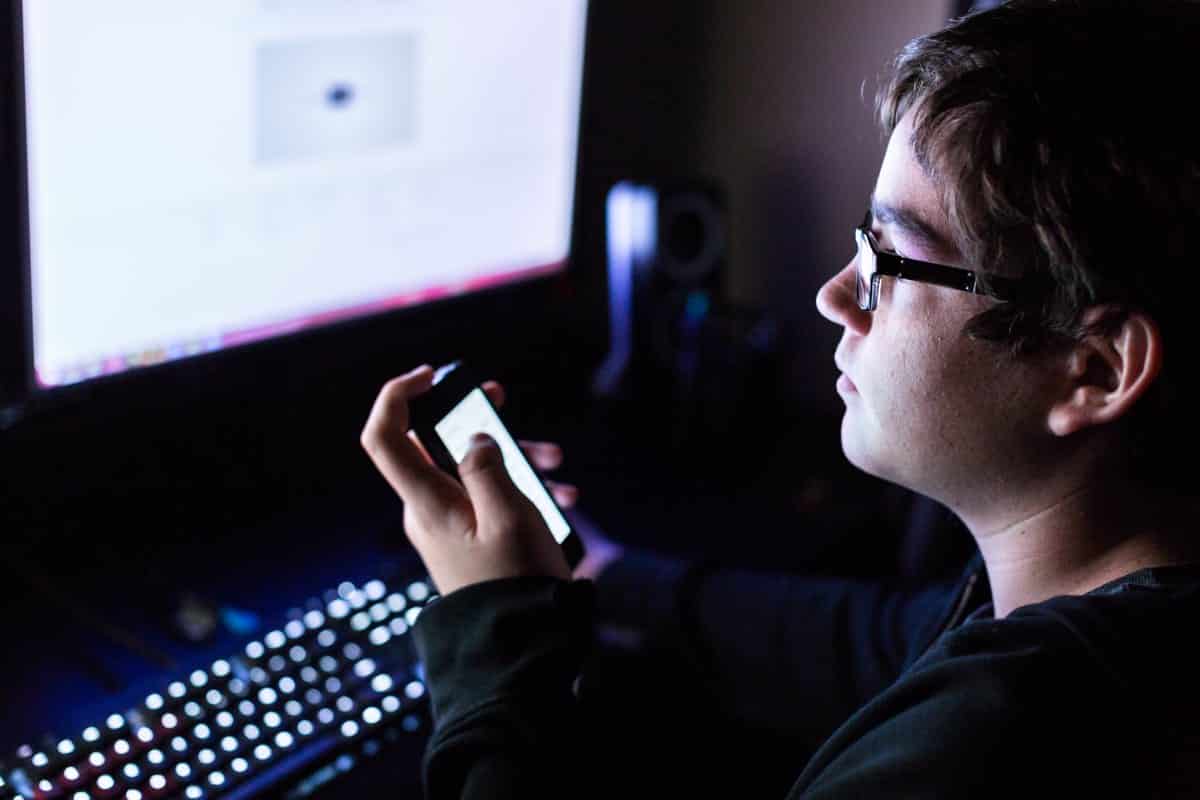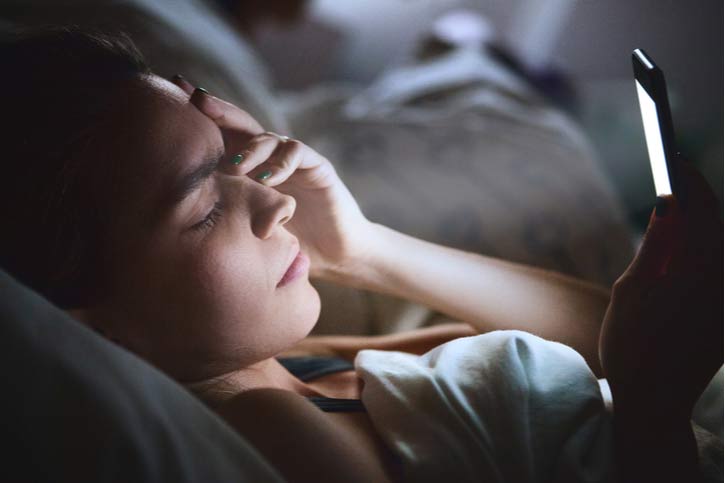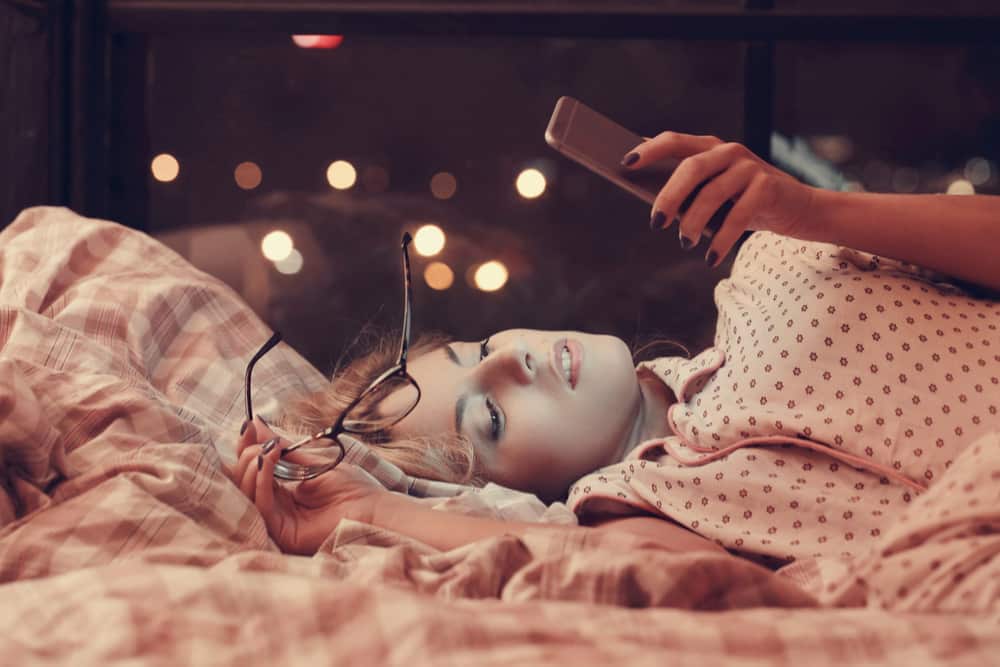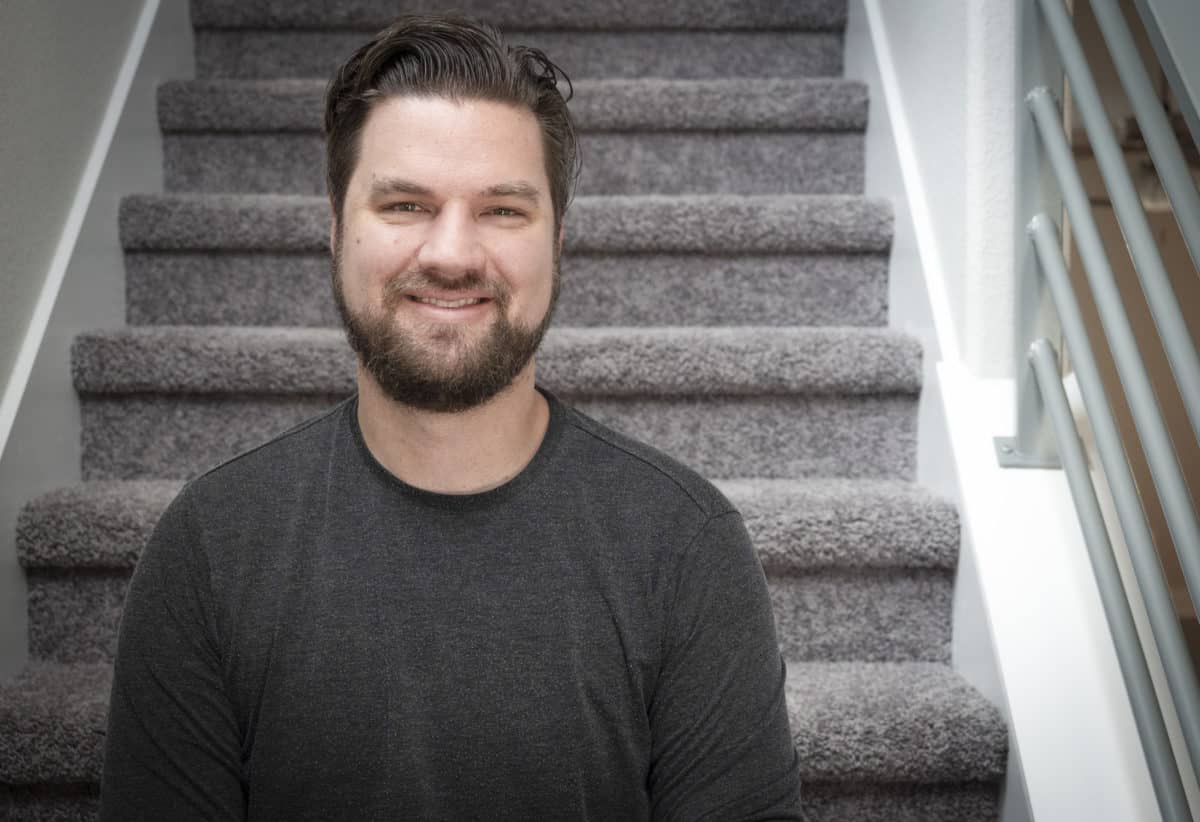Social media has exploded in popularity in the past decade. The majority of people are on at least one social media platform, and many spend a few hours a day browsing their feed.
These apps are meant to be a fun way to interact with friends, but they could be the reason you’re tossing and turning at night. If you’re ready to kick your scrolling habit, keep reading to find out how social media affects your sleep and tips for healthy social media use.
How Often Do People Use Social Media Daily?
If you have a smartphone, you’re likely spending time on various social media apps. We spend a lot of time on these platforms, and a recent study found that the average amount is about two hours a day around the globe.
There’s a long list of options when it comes to social media platforms. A 2021 study from Statista showed that over 4.26 billion people worldwide are on social media apps. From scrolling videos on TikTok, to creating your vision board on Pinterest, there are many different ways to interact with a community online.
Social media use varies by age as well. According to Pew Research, around 80% of people aged 18-49 are active on social media. This percentage drops down to about 45% for those 65 years old and older.
Among all the different apps, Facebook is the most popular, with U.S. users spending almost one hour a day on it, according to Forbes.

Effects of Social Media Use
Social media is interactive, engaging, informative, and funny. It can also be an endless rabbit hole that’s easy to fall into. Unfortunately, all that social media usage can have negative effects on us, including on our mental and sleep health. Let’s get into some of the ways social media has the potential to negatively impact those online.
Social Depersonalization
Depersonalization is when you don’t feel real or inside of your own body. Social media has created a version of this that Psychology Today calls “digital depersonalization.” Because of how often people are online, some users can feel like the version of themselves in the real world and virtually are two different people. And this can lead to depression and anxiety, which are known to negatively impact sleep.
Destabilized Mental Health
Constant social media usage can lead users to develop body image issues. Celebrities and influencers posting photos of their bodies can make users feel the pressure to maintain a similar physique, and that can lead to poor mental health.
Social media platforms and their overuse have also led to ubiquitous cyberbullying. People can be targeted by people they know in real life, or only on the internet. Hurtful comments and posts can be a driving force in any user’s mental health destabilization.
Increased Stress
The pressure of posting on social media can be high for some users. Whether it’s Instagram or Twitter, certain people are trying to gain the most engagement, likes, and shares. This can lead to a fixation on constant posting, which can result in increased stress.
Fear of Missing Out (FOMO)
Fear of missing out (FOMO) is the idea that if you don’t attend an event of some kind, you’re going to miss out on an experience. Social media contributes to this because we can see what’s happening from other people via an Instagram or Snapchat. Missing out on a memorable event can be stressful and negatively impact your mood.
Addiction
Social media can be an addiction just like alcohol. We often hear the term “instant gratification” when talking about social media, and this is a factor in social media addiction.
According to Addiction Center, the constant stream of content we get from social media releases dopamine (the chemical that tells the brain we’re happy) because the brain sees it as a reward. Experts even compare it to how cocaine feels for our brain.
An addiction to social media is dangerous because it could make the digital world more important than your real life and lead you to lose healthy habits like exercising and maintaining a full night’s rest.

How Does Social Media Affect Sleep?
With the above mentioned factors in mind, it’s no surprise that social media does affect your sleep. From the blue light emitted by the screen to the over stimulation that scrolling through your feed can cause, there are a plethora of ways that overusing these apps can negatively impact rest. Let’s discuss the most common ways that social media can negatively affect your sleep.
Extended Blue Light Use
Our phones emit blue light from their screens, and this specific light can keep you from proper rest. When we’re winding down for bed, light plays a vital role in preparing us for sleep.
Think of your ideal sleep environment: it’s likely dark with minimal noises or distractions. Blue light is essentially a spotlight in any dark space. This confuses your circadian rhythm and body’s ability to release melatonin, the chemical that puts you to sleep. Learn more about how blue light affects your sleep in our article.
Dysregulated Melatonin Levels and Delayed Bedtime
Melatonin is a natural chemical that your brain releases when your body gets ready for sleep. You may have heard of people taking melatonin as a supplement when they’re struggling to fall or stay asleep. Melatonin is connected to social media usage because when we scroll on our phones, the blue light they emit blocks the natural signals from our brain that would let our body’s know it’s time to go to bed.
The blue light from our phones is too bright compared to the ideal darkness our bodies crave at bedtime. Using social media before sleeping increases the risk of dysregulated melatonin and results in falling asleep later than you had planned.
Excessive Mental Stimulation
The dopamine that is released when we get a like or positive comment plays a vital role in excessive mental stimulation. Every notification gives our brain a rush. This excessive mental stimulation feels great in the moment, but when those likes don’t roll in as often as we want them to, it can lead to anxiety and depression. These feelings also have a negative effect on sleep.
Irregular Sleep Patterns
If you find yourself turning to your phone to scroll whenever you can’t fall asleep, you could be contributing to irregular sleep patterns. Checking your favorite social media app seems harmless in the moment, but doing this throughout your night results in unsatisfying sleep. Browsing social media can delay bedtime, but it can also keep you from an uninterrupted night’s rest.

Social Media and Sleep Deprivation
Think of the times you’ve stayed up later than you planned because you saw a funny video or interesting post, and wanted to keep going. If you find yourself scrolling and staying awake for longer than you intended, you could be getting sleep deprived.
Sleep deprivation can result from any amount of sleep that you lose at bedtime, whether it be an hour or three hours. The impacts of sleep deprivation can be long lasting on your health, from decreased cognition to increased risk of stroke. Learn more about sleep deprivation in our complete rundown.
Social Media and Insomnia
Insomnia is a common sleep disorder that makes it difficult for people to fall or stay asleep. Social media can contribute to insomnia because of the negative effects of blue light. The blue light disrupts your body’s understanding of when bedtime is. Keep reading about the causes and symptoms of insomnia in our guide.
6 Tips for Healthy Social Media Use
In today’s world, the majority of people are going to be on social media. Although social media does have its risks, there are healthy ways to enjoy it. Let’s chat about how you can shift to healthier online habits.
Download Digital Wellness Timers and Trackers
Sleep trackers can help you identify your sleep habits throughout the night. These sleep apps won’t be able to diagnose any sleep disorders you might suffer from, but they can give you an overview of where your sleep quality and quantity is. Learn more about the kinds of sleep trackers and apps that could help you cut down screen time before bed.
Filter Out the Blue Light on Your Phone
One of the main reasons that social media disrupts sleep is the impact of blue light . Consider making changes to your digital habits to combat blue light.
One way to do this is to check out the settings on your phone and see if you can change the lighting to warmer and darker tones. Your phone may automatically do this closer to bedtime if you have an iPhone.
However, the amount of blue light that you’re receiving is unknown, even with these settings. Find more ways to filter our blue light in our complete rundown.
The best way to completely avoid blue light is to cut out any screens leading up to sleep, usually an hour before you plan to go to bed. This is especially important in children, who are sensitive to light. Sleep is vital to your child’s health, so it’s important to consider things that could be hindering proper rest. Learn more about how you can help your child sleep better in our article.
Set a Social Media “Bed Time”
To help fight the urge to turn over and refresh your feed, set up a social media bed time every night. This can be a great idea for yourself or for your children if they’re having trouble sleeping with the temptation of social media.
You can do this by setting your phone in a specific place, not within arms reach, every day. A study in teens found that reducing blue light and overall screen time before resting led to falling asleep faster and with minimal disruptions throughout the night. Read more about how you and your children can get better sleep with less screen time.
Silence Notifications
Other than the chance to see a post from your favorite celebrity or read a news story, notifications from your friends and family may be the culprit for losing sleep. Consider silencing notifications on your social media apps so you aren’t being woken up or intrigued to browse when your phone rings.
Charge Your Phone in Another Room Overnight
If you’re struggling to stick to limiting your screen time before bed, try moving where your phone rests at night. Many of us will opt to have our phones directly next to us, but this convenience could be the reason behind your sleep loss.
One easy way to do this is to leave your phone in a different room overnight. Check out what an Australian survey found on the connection between sleep loss and phones to learn more about the implications of having your phone within arms reach at night.
Educate Your Children about the Effects of Social Media Use
Healthy habits start when we’re young. It’s important to educate your children about the potential dangers of social media and limiting screen time in general. It’s very common for young children these days to have tablets or smartphones to watch videos or play games. Read all about how a recent study found that preschoolers who watch more TV than average lost sleep quality and quantity.
How to Get More Rest at Night
Getting more restful sleep sounds great, but how can you actually make it happen? Start implementing these helpful tips:
- Use a white noise machine to cut out distracting noises (ex: buzzing phone)
- Charge your phone in another room
- Make your room dark
- Maintain a cool temperature
Find our full list of tops in our creating the perfect sleep environment article!
Establishing healthy sleep habits is crucial to maintaining your general health. Proper sleep is beneficial to your heart health, brain function, immune system, and the list goes on. Read more about the benefits of getting more restful sleep.

